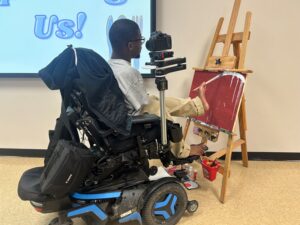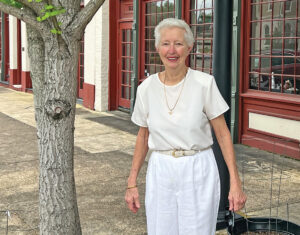Cancer screening can save your life — what are you waiting for?
In the U.S., there are around 40,300 indoor movie screens all prepared to show some of the more than 8,895 titles that IMDB says will be released this year. Too bad cancer screens aren’t getting such public support.
A Centers for Disease Control and Prevention report says that last year, screening for breast cancer declined by 87 percent, and for cervical cancer it went down 84 percent. Screenings for lung and colorectal cancers also have declined, according to the National Cancer Institute. That means that cancer cases will be caught far later than they could have been, and outcomes are less certain. The NCI estimates that if folks get back to screenings, there will still be 10,000 excess deaths from colorectal and breast cancer in the U.S. in the next decade because of screening and treatment delays.
Earlier this year, a coalition of 76 cancer organizations released an open letter urging Americans to make cancer care a priority. That’s because women ages 50 to 69 who get a mammogram every two years see a 16.5 percent reduction in deaths from breast cancer versus no screening. Getting an all-clear or having a polyp removed during a sigmoidoscopy or colonoscopy cuts the risk of colon cancer by 40 percent.
The cancer screenings that adults need (frequency depends on age, disease risks, gender and your doc) include: PSA (prostate), mammogram (breast), pap and HPV test (cervix), a visual skin check, fecal occult blood testing annually, colonoscopy when recommended (colorectal) — and for heavy smokers, a CT scan. Talk to your doc about getting them on your schedule soon.
Living to a healthy 100 — you can do it
Nancy Lieberman was 50 when she retired from the WNBA; Satchel Paige was just six days shy of 51 when he left the ballpark; and George Blanda was 48 when he put down the football. Longevity like that is rare in professional sports, but a long lifespan is becoming ever-more common off the field. The oldest living person (as of this writing) is 118-year-old Kane Tanaka of Japan. And a new study published in Demographic Research says that many people alive today will live to over 100 (there are now 500,000 of them worldwide), with a possible lifespan of 125 or 130 by 2099.
The researchers predict that by the beginning of the next century, there’s a 99 percent probability of a person living to 124, a 68 percent chance of a person hitting 127 and a 13 percent probability of someone living to age 130.
If you’re going to be alive for 100 years (or more), you want to have your health last that long too. That’s why it has never been more important to start today to adopt health-extending habits that up your chances of enjoying outdoor fun at 101.
You know the three keys: plant-based, minimally processed foods; lots of activity and interaction — physical and mental; and stress control. For detailed suggestions, enjoy Dr. Mike’s “The Great Age Reboot: Cracking the Longevity Code to Live Younger for Longer,” out January 2022. It’s about how to have a body that’s 20, 30 or 40 even when you’re 70 — or older!
Are you sitting on your blood pressure problems?
Antoninus, a teenage Roman emperor from 218 to 222, invented the whoopee cushion to tease his dinner guests. The modern version of the flatulent pillow appeared in the 1930s — and millions have been sold to folks wanting to make guests pop out of their seats.
Breaking up sit-down sessions is a great idea — but the benefits are no joke. At the top of that list is the power of UP to bring blood pressure DOWN.
If you don’t get a good dose of physical activity most days, chances are you’re dealing with high blood pressure. That’s because sitting or reclining for many hours a day stifles your metabolism. That, in turn, lowers levels of certain metabolites, whose job is to dilate blood vessels in response to activity. Those lower levels cause blood vessels to constrict, making your pressure rise.
Luckily, even brief bouts of activity throughout the day can improve blood pressure. One study found that when people with diabetes interrupted sitting with 30 minutes of light-intensity walking or with three minutes of simple resistance exercises every half hour, blood pressure went down by 14 to 16 mmHg (systolic) and 8 to 10 mmHg (diastolic). That’ll change your future!
Bonus: Using a high-resistance inspiratory muscle strength training (IMST) device for five minutes daily for six weeks strengthens breathing muscles, stimulates production of blood-vessels-relaxing nitric acid and can drop your systolic number by around 9 mmHg, while it improves the ability for arteries to expand upon stimulation by 45 percent. Ask your doctor if the device is right for you.
The health benefits of social connections
Michael Corleone in “The Godfather” says, “My father taught me many things … he taught me keep your friends close, but your enemies closer.” Not the formula for a relaxed and happy life. Keep your friends close and your cortisol levels low — now that’s a much better recommendation for a long and healthy future.
A new study in the Journal of Women and Aging looked at friendships and conversation quality in young and older women. The researchers found that in times of stress, women can kick in a tend-and-befriend response instead of fight-or-flight, and that impulse helps lower their level of stress hormones — cortisol in particular.
That, in turn, reduces the harm that chronically-elevated levels of cortisol can do to the body by pumping up blood glucose, causing body-wide inflammation, reducing immune system function and increasing the risk for cardiovascular disease.
Other studies have shown similar health benefits of social relationships.
■ One American-U.K. study from the mid-20th century found that six friend contacts a month were the best way to ease the adverse health effects of stressful life events.
■ A 2010 review of research found that having strong social ties increased longevity as much as quitting smoking.
■ A three-year Swedish study of more than 13,600 men and women found that having few or no close friends increased the risk of having a first-time heart attack by about 50 percent.
Especially now, as the world opens up (if you are vaccinated), we hope you take advantage of opportunities to improve your well-being by enjoying the company of others.
Don’t get (cardiac) arrested for what you’re eating
When the Boston Celtics’ Reggie Lewis died of sudden cardiac arrest (SCA) in a playoff game against the Hornets in 1993, he was only 27 years old. As startling as such a sudden cardiac death (SCD) is, according to the Cleveland Clinic, there are 325,000 SCDs annually in the U.S. — and they happen frequently to folks in their mid-30s to mid-40s.
When researchers looked at 19 years’ worth of data on 21,000 people ages 45 and older, more than half of whom lived in the southeastern U.S., they discovered that folks who regularly ate a Southern-style diet had a 46 percent higher risk of SCD than those who ate it infrequently. The Southern-style diet was defined as having added unhealthy fats, fried foods, eggs, organ meats (such as liver or giblets), processed meats (such as deli meats, bacon and hot dogs) and sugar-sweetened beverages. Sounds like a lot of America to us! The average American downs 18 pounds of bacon and 39 gallons of soda a year!
So listen up! You may know that an unhealthy menu can clog your arteries and increase your heart attack and stroke risk, but you may not have known it could lead to SCA, which is caused when the heart’s electrical system malfunctions, reducing blood flow to the body and brain. So, here’s one more reason to adopt a Mediterranean diet, rich in fruits, vegetables, fish, whole grains and legumes and with very little meat and dairy. The researchers found that those food choices slashed the risk of SCD by 26 percent.
Mehmet Oz, M.D. is host of “The Dr. Oz Show,” and Mike Roizen, M.D. is Chief Wellness Officer and Chair of Wellness Institute at Cleveland Clinic. To live your healthiest, tune into “The Dr. Oz Show” or visit www.sharecare.com.
You can help your community
Quality, in-depth journalism is essential to a healthy community. The Dispatch brings you the most complete reporting and insightful commentary in the Golden Triangle, but we need your help to continue our efforts. In the past week, our reporters have posted 37 articles to cdispatch.com. Please consider subscribing to our website for only $2.30 per week to help support local journalism and our community.





